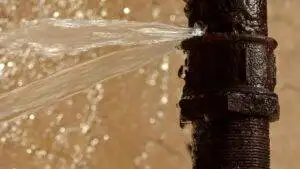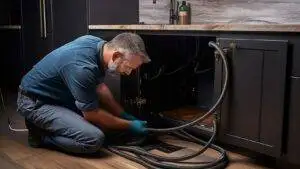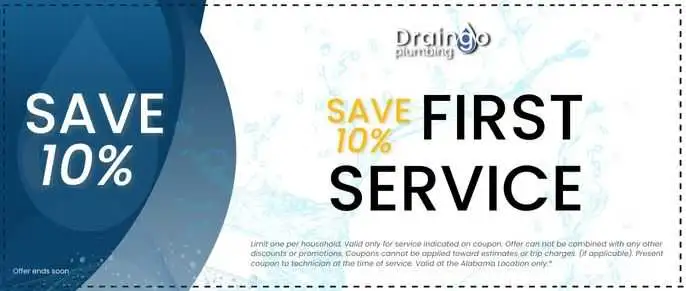Hot Water Heater Maintenance Tips: 10 Essential Practices for Longevity and Efficiency
Importance of hot water heater maintenance for longevity
Are you tired of frequent hot water heater breakdowns and the inconvenience they cause? Are you looking for ways to maximize the lifespan of your hot water heater and save on costly repairs or replacements? If so, then you’ve come to the right place. In this article, we’ll delve into the importance of hot water heater maintenance for longevity and provide you with essential tips to keep your hot water heater running smoothly for years to come.
Your hot water heater is an unsung hero, tirelessly working behind the scenes to provide you with warm showers, clean dishes, and fresh laundry. But like any appliance, it requires regular care and attention to ensure optimal performance and longevity.
First and foremost, regular hot water heater maintenance helps to prevent major malfunctions and breakdowns. By conducting routine inspections and addressing any minor issues promptly, you can avoid more significant problems that could result in a complete system failure. Just imagine the inconvenience and discomfort of waking up one morning to no hot water, especially during the chilly winter months. By investing a little time and effort in hot water heater maintenance, you can prevent such scenarios and enjoy a consistent supply of hot water.
Hot water heater maintenance also helps to maximize the efficiency of your hot water heater. Over time, sediment and mineral deposits can accumulate at the bottom of the tank, reducing its heating efficiency. Flushing the tank periodically to remove these deposits not only improves the heater’s performance but also lowers your energy bills. A clean and well-maintained hot water heater operates more efficiently, heating water faster and using less energy in the process.
Furthermore, proper maintenance extends the lifespan of your hot water heater, saving you money in the long run. The average lifespan of a hot water heater is typically around 10-15 years. However, neglecting maintenance can significantly reduce its longevity, leading to premature failure and the need for a costly replacement. By implementing regular maintenance practices, such as inspecting and replacing sacrificial anode rods, testing the pressure relief valve, and cleaning the air intake and burner assembly (for gas heaters), you can ensure that your hot water heater remains in optimal condition for an extended period.
Not only does regular maintenance benefit your hot water heater, but it also enhances your overall safety. For instance, a malfunctioning pressure relief valve can lead to excessive pressure buildup within the tank, posing a potential explosion risk. By testing and maintaining this valve, you can prevent dangerous situations and safeguard your home and family.
Understanding Your Hot Water Heater: A Guide to the Heart of Your Home's Comfort
When was the last time you took a moment to appreciate the hardworking appliance that ensures a warm shower, clean dishes, and fresh laundry? Your hot water heater is the unsung hero of your home, providing the comfort and convenience you rely on daily. But how well do you really understand this vital piece of equipment?
Let’s dive deeper into the inner workings of your hot water heater, demystify its components, and empower you with knowledge that will help you appreciate and maintain it better.
Types of Hot Water Heaters: Hot water heaters come in various types, including tankless, storage tank, and heat pump models. Tankless heaters instantly heat water as it flows through, eliminating the need for a storage tank. Storage tank heaters store and heat a set volume of water, ready to be used when needed. Heat pump heaters use electricity to transfer heat from the air or ground to warm the water. Understanding the type of hot water heater you have is crucial when it comes to hot water heater maintenance and troubleshooting.
The Tank: In storage tank water heaters, the tank is where the magic happens. It holds a specific volume of water, which is continuously heated to a preset temperature. The tank is insulated to minimize heat loss, ensuring that hot water is readily available when you need it.
Heating Element or Burner: Within the tank, you’ll find a heating element (in electric heaters) or a burner (in gas heaters). The heating element or burner is responsible for heating the water to the desired temperature. It’s essential to ensure these components are clean and functioning properly to maintain efficient heating.
Temperature and Pressure Relief Valve (TPR Valve): Safety is paramount when it comes to hot water heaters. The TPR valve is a crucial safety feature designed to relieve excess pressure and temperature within the tank. If pressure or temperature exceeds safe levels, the valve opens, allowing water to be released, preventing catastrophic failures. Regular testing and maintenance of the TPR valve are vital to ensure its proper functioning.
Anode Rod: The sacrificial anode rod is an unsung hero within the tank. It’s a metal rod designed to attract corrosive elements that could otherwise damage the tank. Over time, the anode rod deteriorates, sacrificing itself to protect the tank. Regular inspection and replacement of the anode rod are crucial to prevent tank corrosion.
Venting (Gas Heaters): For gas hot water heaters, proper venting is essential to safely exhaust combustion gases. Venting ensures that harmful gases, such as carbon monoxide, are safely directed outside your home. Regular inspection and maintenance of the venting system are necessary to prevent gas leaks and ensure your safety.
Controls and Thermostats: Hot water heaters have controls and thermostats that regulate water temperature and overall operation. These controls allow you to adjust settings according to your needs. Understanding how to operate and adjust these controls is essential for optimizing energy efficiency and comfort.
By gaining a better understanding of your hot water heater and its components, you become equipped to perform basic maintenance tasks, identify potential issues, and communicate effectively with professionals when needed. Regular maintenance, such as flushing the tank, inspecting and replacing the anode rod, and cleaning the heating elements or burners, will help keep your hot water heater in top shape and extend its lifespan.
Remember, your hot water heater is a crucial investment in your home’s comfort. Treat it with the care and attention it deserves, and it will continue to provide you with reliable, warm water for years to come.
Different types of hot water heaters and their components
When it comes to hot water heaters, there’s no one-size-fits-all solution. The needs of every household may vary, and that’s why there are different types of hot water heaters available on the market. Understanding these various types and their components is crucial for making an informed decision about the best option for your home. So, let’s explore the different types of hot water heaters and the components that make them function efficiently.
Storage Tank Water Heaters: Storage tank water heaters are the most common type found in households. They consist of a large tank that holds a predetermined volume of water. Inside the tank, you’ll find several key components:
a. Tank: The tank itself is made of durable materials such as steel or glass-lined steel. It’s designed to store and heat the water.
b. Heating Element/Burner: Electric storage tank heaters have one or two heating elements located inside the tank. These elements heat the water to the desired temperature. Gas-powered storage tank heaters use a burner located at the bottom of the tank to heat the water.
c. Temperature and Pressure Relief Valve (TPR Valve): The TPR valve is a critical safety feature that releases excess pressure or temperature inside the tank to prevent explosions. It’s essential to ensure that the TPR valve is functioning correctly and has proper discharge piping.
d. Anode Rod: Anode rods are sacrificial rods made of magnesium or aluminum that are suspended in the tank to prevent corrosion. These rods attract corrosive elements, protecting the tank from rust and extending its lifespan. Regular inspection and replacement of the anode rod are necessary to prevent tank corrosion.
Tankless Water Heaters: Tankless water heaters, also known as on-demand water heaters, provide hot water only when needed. They don’t have a storage tank and heat water directly as it passes through the unit. Key components of tankless water heaters include:
a. Heat Exchanger: Tankless water heaters have a heat exchanger, typically made of copper or stainless steel, that quickly heats the water as it flows through.
b. Flow Sensor: A flow sensor detects the water flow and activates the heat exchanger to start heating the water.
c. Burner/Heating Element: Gas-powered tankless water heaters use a burner to heat the water, while electric tankless heaters employ heating elements.
d. Control Panel: The control panel allows users to adjust temperature settings, monitor system performance, and may include additional features such as timers and diagnostic functions.
Heat Pump Water Heaters: Heat pump water heaters use electricity to transfer heat from the air or ground to heat the water. They are highly energy-efficient and ideal for moderate to warm climates. Key components of heat pump water heaters include:
a. Heat Pump Unit: The heat pump unit extracts heat from the surrounding air or ground and transfers it to the water.
b. Compressor: The compressor compresses the refrigerant, increasing its temperature and facilitating efficient heat transfer.
c. Evaporator Coil: The evaporator coil absorbs heat from the air or ground, initiating the heat transfer process.
d. Condenser Coil: The condenser coil releases the absorbed heat, heating the water in the tank.
Understanding the different types of hot water heaters and their components is essential for selecting the right one for your specific needs. Whether you choose a storage tank water heater, tankless water heater, or heat pump water heater, each type has its advantages and considerations. By familiarizing yourself with the components and how they work together, you can make an informed decision and ensure proper hot water heater maintenance and care for your chosen hot water heater type.
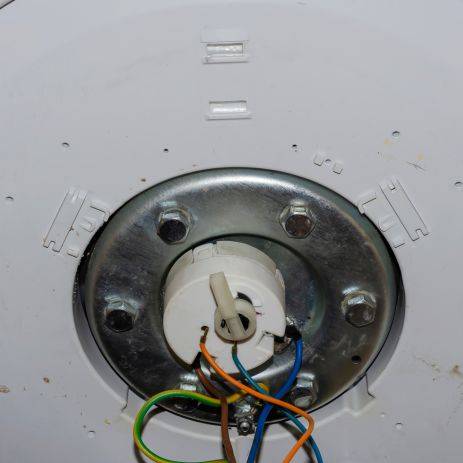
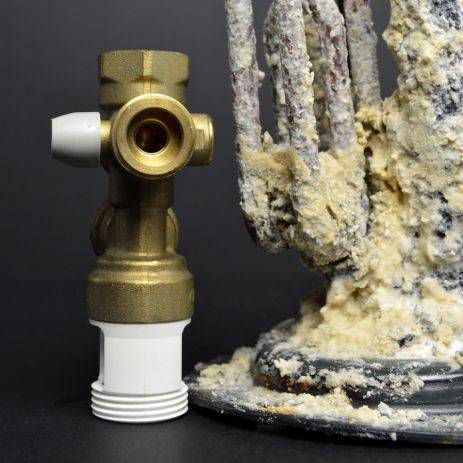
Signs of Hot Water Heater Problems
Signs of Hot Water Heater Problems: Identifying Issues Before They Escalate
Your hot water heater is an essential appliance that provides you with warm showers, clean dishes, and comfortable living. However, like any mechanical system, it can experience issues over time. Being able to recognize the signs of hot water heater problems is crucial for addressing them promptly and preventing further damage. So, let’s explore some common indicators that your hot water heater may be experiencing issues.
Insufficient Hot Water: If you’re constantly running out of hot water faster than usual or finding that the water isn’t reaching the desired temperature, it could indicate a problem with your hot water heater. This could be caused by a malfunctioning heating element, sediment buildup in the tank, a faulty thermostat, or even an undersized heater for your household’s needs.
Strange Noises: Hot water heaters typically produce some level of noise during operation, but if you notice unusual sounds like popping, rumbling, or banging noises, it could be a sign of sediment buildup. Over time, sediment can accumulate at the bottom of the tank, causing the water to boil and create these noises. Flushing the tank may resolve this issue, but if the noises persist, it’s best to have a professional inspect the heater.
Discolored or Smelly Water: If the hot water coming from your taps has a rusty or discolored appearance, it could indicate corrosion inside the tank. Additionally, if the water has a foul smell, it may be due to bacteria growth in the tank. Discolored or smelly water is a clear sign that your hot water heater needs attention, and it’s important to address it promptly to ensure the water quality in your home.
Leaks and Drips: Visible leaks or drips around your hot water heater are obvious signs of a problem. Leaks can occur due to loose fittings, corroded pipes, or a faulty temperature and pressure relief valve. Ignoring leaks can lead to water damage and further deterioration of the unit, so it’s essential to address them immediately.
Increased Energy Bills: If you notice a sudden and unexplained increase in your energy bills, your hot water heater may be to blame. A malfunctioning heater can operate inefficiently, leading to excessive energy consumption. Monitoring your energy bills and addressing any unusual spikes can help you catch potential issues with your hot water heater early on.
Age of the Heater: Hot water heaters have a limited lifespan, typically around 10-15 years, depending on the type and hot water heater maintenance routines. If your heater is approaching or exceeding its expected lifespan, it’s wise to be vigilant for any signs of deterioration or decline in performance. Aging heaters are more prone to problems, and it may be a good time to consider a replacement.
Recognizing these signs of hot water heater problems allows you to take proactive measures to prevent further damage and inconvenience. Regular hot water heater maintenance, such as flushing the tank, inspecting components, and having professional inspections, can help identify and address potential issues before they escalate. It’s important not to ignore or dismiss any signs of trouble with your hot water heater, as timely action can save you from expensive repairs or unexpected cold showers.
If you notice any of these signs or have concerns about your hot water heater, it’s recommended to consult a qualified professional who can assess the situation and provide expert advice. Remember, a well-maintained hot water heater ensures the comfort and convenience of your home, so staying vigilant and addressing problems promptly is key to a reliable and efficient hot water supply.
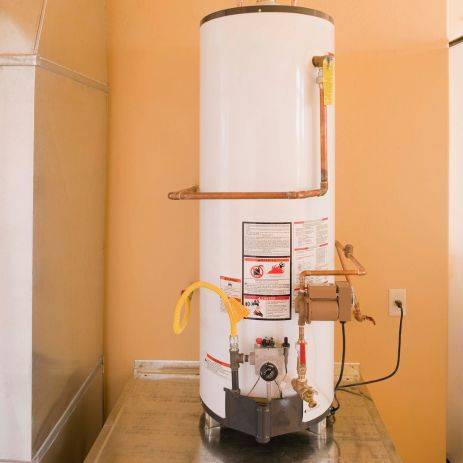
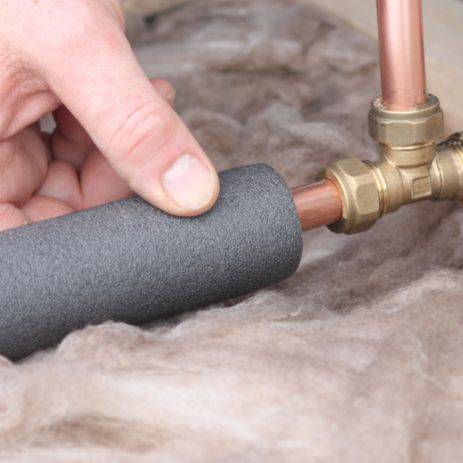
Essential Hot Water Heater Maintenance Tips: Ensuring Longevity and Efficiency
Your hot water heater is a vital appliance that provides you with the comfort and convenience of warm showers, clean dishes, and fresh laundry. To keep it running smoothly and extend its lifespan, regular hot water heater maintenance is essential. By following these essential hot water heater maintenance tips, you can ensure optimal performance, energy efficiency, and avoid costly repairs or replacements.
Regularly Flush the Tank: Over time, sediment, minerals, and debris can accumulate at the bottom of the hot water heater tank. This buildup can affect the heating efficiency and lead to premature wear and tear. Flushing the tank annually or as recommended by the manufacturer helps remove the sediment, ensuring efficient heat transfer and reducing the risk of corrosion.
Inspect and Test the Pressure Relief Valve: The pressure relief valve is a crucial safety feature that releases excess pressure inside the tank. Regularly inspect and test the valve to ensure it’s functioning correctly. Lift the lever partway to allow some water to discharge, which verifies that the valve is operational. If the valve is faulty or does not release water during testing, it should be replaced promptly.
Check the Anode Rod: The sacrificial anode rod is a critical component that protects the tank from corrosion. Over time, the rod deteriorates, sacrificing itself to prevent the tank from corroding. Inspect the anode rod annually and replace it if it’s heavily corroded or has a significant reduction in size. Replacing the anode rod can significantly extend the lifespan of your hot water heater.
Insulate the Pipes and Tank: Insulating the hot water pipes and tank helps minimize heat loss, improving energy efficiency and reducing standby heat loss. Insulation sleeves or wraps are readily available and can be easily installed. Pay special attention to any exposed pipes or areas where heat loss is likely to occur.
Adjust the Temperature: Consider adjusting the temperature of your hot water heater to a safe and energy-efficient level. The recommended temperature is typically around 120 degrees Fahrenheit (49 degrees Celsius). Lowering the temperature not only reduces the risk of scalding but also helps save energy and reduces heating costs.
Monitor for Leaks: Regularly inspect your hot water heater and surrounding areas for any signs of leaks, drips, or moisture. Even small leaks can indicate a problem that requires attention. Addressing leaks promptly can prevent water damage, mold growth, and further deterioration of the unit.
Clean the Air Intake (for Gas Heaters): If you have a gas hot water heater, ensure that the air intake and burner assembly are clean and free from dust, debris, or obstructions. This helps maintain proper combustion and efficient operation. Follow the manufacturer’s instructions for cleaning and maintenance, or consider having a professional perform this task.
Schedule Professional Inspections: While you can perform many maintenance tasks on your own, it’s also essential to have your hot water heater professionally inspected annually or as recommended by the manufacturer. Professionals can identify potential issues, perform thorough checks, and ensure all components are in good working condition.
By following these essential hot water heater maintenance tips, you can prolong the lifespan of your appliance, improve energy efficiency, and avoid unexpected breakdowns. Remember to consult the manufacturer’s instructions for specific maintenance guidelines and safety precautions. A well-maintained hot water heater provides reliable and consistent hot water, ensuring your comfort and convenience for years to come.
Maximizing Efficiency and Performance: Additional Hot Water Heater Maintenance Tips for Extended Longevity
Maintaining your hot water heater doesn’t end with the essential hot water heater maintenance tasks. There are additional measures you can take to maximize its longevity, enhance energy efficiency, and optimize performance. By implementing these extra tips, you can ensure that your hot water heater continues to serve you well for years to come.
Insulate the Tank: In addition to insulating the pipes, consider insulating the hot water heater tank itself. Insulation jackets or blankets specifically designed for hot water heaters can help minimize heat loss and reduce standby energy consumption. This is especially beneficial for older or less insulated models.
Install a Timer or Smart Thermostat: Consider installing a timer or smart thermostat for your hot water heater. These devices allow you to set specific schedules for heating water, ensuring that it operates only when needed. By reducing the heating cycles during periods of low demand, you can conserve energy and potentially extend the lifespan of the heating elements.
Use Water-Saving Fixtures: Using water-saving fixtures such as low-flow showerheads and aerators can reduce the overall hot water consumption in your home. By minimizing the amount of hot water needed, you can lessen the strain on your hot water heater and increase its efficiency. This not only saves energy but also reduces wear and tear on the unit.
Practice Temperature Moderation: While it’s essential to have hot water readily available, using excessively high temperatures can be wasteful and potentially hazardous. Consider adjusting the temperature setting to a comfortable yet safe level. Not only does this reduce the risk of scalding, but it also helps prevent unnecessary strain on the heating elements and reduces energy consumption.
Avoid Overworking the Heater: Be mindful of your hot water usage patterns and avoid overworking the heater. For instance, if multiple showers, laundry, or dishwashing tasks are happening simultaneously, it may put excessive strain on the unit. Spacing out high-demand activities or using energy-efficient appliances strategically can help reduce the workload on the hot water heater.
Regularly Inspect and Clean Vents (for Gas Heaters): If you have a gas hot water heater, ensure that the vents and air intake are free from obstructions, debris, or dust. Proper airflow is crucial for efficient combustion and safe operation. Regularly inspect and clean these components for hot water heater maintenance to achieve optimal performance and prevent potential hazards.
Be Mindful of Water Quality: The quality of your water can impact the performance and longevity of your hot water heater. If your water supply is particularly hard or has high mineral content, it can lead to sediment buildup and potentially accelerate corrosion. Installing a water softener or using a whole-house filtration system can help mitigate these issues and prolong the life of your hot water heater.
Consider Professional Maintenance: While you can perform basic maintenance tasks, it’s beneficial to have your hot water heater professionally serviced periodically. A qualified technician can conduct a comprehensive inspection, check for any hidden issues, and perform necessary adjustments or repairs. Professional hot water heater maintenance ensures that your hot water heater remains in top condition and can help catch potential problems before they escalate.
By incorporating these additional tips into your hot water heater care routine, you can maximize its longevity, improve energy efficiency, and maintain optimal performance. Remember, a well-maintained hot water heater not only provides comfort but also helps save energy and reduces the likelihood of unexpected breakdowns.
Going Beyond the Basics: Essential Hot Water Heater Maintenance for Longevity
Remember, proper hot water heater maintenance of your hot water heater goes beyond these essential tips. By incorporating additional measures into your maintenance routine, you can further enhance the longevity and efficiency of your appliance, ensuring optimal performance and cost savings.
Insulating the tank is an effective way to reduce heat loss and conserve energy. By adding insulation to the hot water heater tank, you create a barrier that helps retain heat, minimizing standby heat loss. This is especially beneficial for older models or those located in colder areas. Insulation jackets or blankets designed for hot water heaters are readily available and easy to install.
Using water-saving fixtures throughout your home can also contribute to the longevity and efficiency of your hot water heater. Low-flow showerheads, aerators for faucets, and efficient appliances all help reduce the overall hot water consumption. By using less hot water, you decrease the workload on your heater, leading to less wear and tear on its components and potentially extending its lifespan.
Practicing temperature moderation is another important aspect of hot water heater maintenance. While it’s tempting to set the temperature high for a steaming hot shower, excessively high temperatures can be wasteful and pose a scalding risk. By adjusting the temperature setting to a comfortable yet safe level, typically around 120 degrees Fahrenheit (49 degrees Celsius), you can prevent unnecessary strain on the heating elements and minimize energy consumption.
Being mindful of water quality is also crucial for the health and performance of your hot water heater. If your water supply is particularly hard or has a high mineral content, it can lead to sediment buildup and accelerate corrosion. Installing a water softener or using a whole-house filtration system can help mitigate these issues, prolonging the life of your hot water heater and ensuring optimal performance.
By implementing a comprehensive hot water heater maintenance routine that includes these additional measures, you can maximize the longevity of your hot water heater, reduce energy consumption, and enjoy a consistent supply of hot water without unexpected interruptions. Regular hot water heater maintenance is an investment in the performance and reliability of your appliance, providing comfort and convenience for you and your household for years to come.
Remember to consult the manufacturer’s instructions for specific hot water heater maintenance guidelines and safety precautions related to your hot water heater model. If you have any doubts or concerns about performing maintenance tasks, it’s always recommended to seek the assistance of a qualified professional. With proper care and attention, your hot water heater will continue to serve you reliably.
Contact Drain Go for Expert Water Heater Maintenance, Repair, and Installation
When it comes to water heater maintenance, repair, and installation, you can count on Drain Go. We are your trusted professionals, dedicated to delivering top-notch services for all your water heater needs. Whether you require routine maintenance to prolong the lifespan of your appliance, repairs to address any issues, or a new installation for an upgraded system, we’ve got you covered.
Our team of experienced technicians is well-equipped to handle all types of water heaters, from traditional tank models to energy-efficient tankless units. With Drain GO, you can have peace of mind knowing that your water heater is in capable hands. We take pride in our commitment to excellence and customer satisfaction, making us your go-to choice for all water heater maintenance, repair, and installation services. Contact us today and experience the professional service that sets us apart.

Other Services
Faq's
How do tankless water heaters operate?
A tankless water heater offers an energy-efficient solution to traditional units by providing hot water on demand. Instead of storing heated, pre-heated water in a large storage unit and having it re-heat over time when needed, a tankless system heats the exact amount of necessary upon turning on the tap – making them unique from their predecessors while also delivering considerable savings through reduced electricity costs.
Tankless water heaters offer efficient, money-saving benefits – they only use energy when you need hot water and don’t waste resources cycling on/off like other systems. This translates to long-term savings for your household!
What is the advantage of owning a tankless unit as opposed to a traditional one?
Tankless water heaters offer a number of energy saving benefits, including not needing to remain constantly running even when hot water isn’t in use. This can help households save on costs over time by significantly reducing the amount it would normall cost for ongoing operation of traditional storage tank-style systems.
Why should you install a tankless water heater in your home?
Enjoy a never-ending supply of hot water with the help of an energy-efficient tankless water heater. With this innovative system, you and your family don’t have to take turns showering or washing dishes since there is no limit on warm water – simply turn it on whenever you need it! Additionally, making an upgrade will also benefit the planet by consuming less power than traditional heaters; thereby helping reduce your monthly bills while being eco friendly at the same time.
Are you looking to get the most bang for your buck when it comes to water heating efficiency and storage space? If so, a tankless unit may be exactly what you need. Most notably, these heaters provide durability that far surpasses traditional systems with an estimated longevity of up to 20 years – this is twice as long as many standard units! Furthermore, having no large tanks means reduced consumption of valuable room in your home; allowing more free-space than ever before. Tankless models present homeowners with both practicality and assurance– making them ideal options for modern living spaces.
Is there a downside to tankless water heaters?
Hot water tankless heaters may have a steeper upfront cost, but in the long term you could be saving on energy bills and enjoying more hot showers. Additionally, some of these models require unique sealed vent systems to make sure they work properly. The only potential downside might just be that you won’t need an excuse when it comes to cutting short those lengthy showers.

